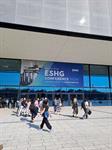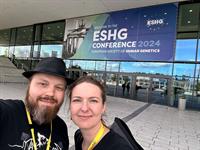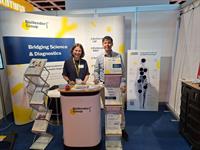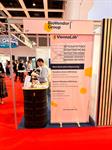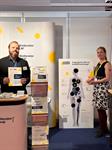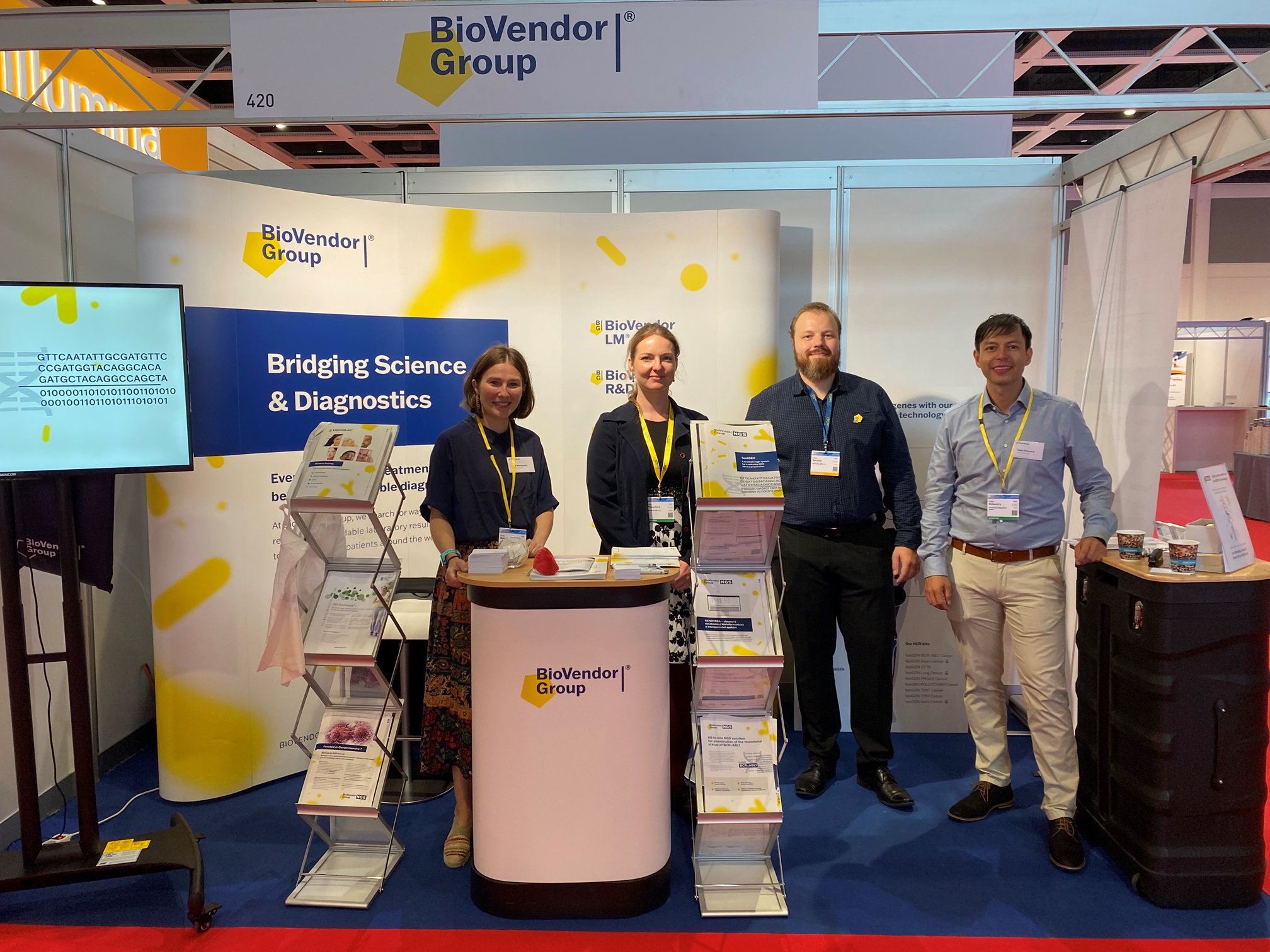
The 57th ESHG 2024 is behind us, gathering over 4,500 experts in human genetics.
Berlin hosted the 57th ESHG 2024, attracting over 4,500 human genetics experts. The program covered the latest genome research, technological innovations, and ethical issues. Key speakers included Nobel laureate Svante Pääbo. The conference also offered extensive networking opportunities.
Why Berlin?
A modern city full of contrasts, a centre of culture and artistic avant-garde, a metropolis that at every step reminds one of its contradictory history. A place closely connected with human genetics. Home to many leading research institutions focusing on genetics and biotechnology. Yes, all this is Berlin. One of the most important centers of higher education and research in Germany and Europe. Berlin's universities offer top programs and research in the field of genetics. Nearly seventy Nobel Prize winners, including names such as Albert Einstein, Max Planck, and Robert Koch, are historically associated with Berlin's universities. It is no wonder that the organizing committee of the European Society of Human Genetics chose this city to host the 57th annual conference. Scientists researching molecular genetics, cytogenetics, biochemical genetics, gene therapy, genomics, and genetics, bioinformatics, clinical geneticists, pediatricians, oncologists, hematologists, and neurologists, essentially everyone involved in human genetics, rushed to the CityCube conference and exhibition arena in Berlin at the beginning of June.
From theory to practical skills
The ESHG conference traditionally provides a platform for the latest findings in human genetics, both from a scientific and technological perspective. This year's program covered all aspects of human genetics, from the latest research on the human genome and individual genetic or chromosomal diseases to practical questions regarding the organization of services in this field. It was not limited to traditional formats but included educational sections, interesting symposia, and workshops. There was also space for young promising scientists. Besides focusing on cutting-edge developments, it also offered opportunities for participants seeking more basic training in the form of pre-meeting courses.
We're targeting the genes!
Capturing the attention of 4,500 delegates in a packed conference program is certainly no easy task, and this is exactly what nearly 160 diagnostic companies aimed to do in the exhibition hall. The molecular part of the BioVendor Group team, represented by BioVendor MDx and ViennaLab, showcased our solutions for customized genetic testing. The "Target genes with our fastGEN technology" throwing competition, which we successfully tried for the first time at the DNA diagnostic conference in Brno, served perfectly to present the fastGEN kits portfolio. On the last day of the exhibition, the winners were drawn with valuable prizes. "We wanted to show in a fun way that you don't have to know how to aim with our diagnostic kits, because targeted sequencing with fastGEN is fast, reliable, and simple on its own," explains Adam Novotný, application specialist at BioVendor MDx. "Additionally, we established many new contacts with business partners at their booths, where we explored the potential for future collaboration and discussed projects for further development."
Lecture Marathon
The opportunity to meet the world's leading geneticists was not missed by Johanna Trupke, Head of R&D at ViennaLab Diagnostics: "I found the conference extremely interesting and a great opportunity to learn the latest trends in human genetics. These covered both technological aspects as well as new findings in different genetic diseases. It is a very big conference, so it is impossible for one person to attend all the talks as there are many overlapping sessions. Fortunately, both the talks and the posters are available online." Her words are confirmed by the conference statistics: 5 award lectures, 30 symposia, 11 educational and plenary sessions with a total of 110 invited speakers. When you add 23 practical workshops, 3 "Get2gether" sessions to promote professional connections, and a large poster section with 3,153 submitted abstracts, it is clear that some lectures will have to be watched by conference delegates from home.
Genetics in Motion: exons, telomeres, peptide vaccinations
We were, of course, interested in what specific topics are currently moving the molecular world and what interesting things have stirred the rows of listeners in the auditoriums. We asked Anna Kolouchová, Business Development Manager at BioVendor MDx, who was introducing passersby to the secrets of fastGEN technology at our booth and also had the opportunity to attend a few selected lectures. "Researchers are increasingly focusing on whole exon/genome sequencing and long-read sequencing. Attention is primarily directed at non-coding parts and telomeres, whose contribution is being intensely discussed. We mainly attended presentations introducing new options for oncogenes interfering treatment and precision medicine in general. Here, I would like to highlight new findings regarding peptide vaccination, which represents significant progress in the treatment of difficult-to-target tumor types, namely glioblastomas," Anna summarizes the conference insights.
Why Sequencing the Neanderthal Genome is Important
The quality of the scientific program speaks for itself, highlighted by the most acclaimed speakers. Professor Cecilia Lindgren from the Institute of Endocrinology and Metabolism Genomics at Oxford University in the UK presented her work in the field of obesity genetics over the past 20 years. Angus Clarke, emeritus professor of genetics at Cardiff University in Wales, focuses on the social and ethical aspects of human genetics. James R. Lupski, Cullen Professor of Molecular and Human Genetics and Professor of Pediatrics at Baylor College of Medicine, delved into how the principles of biological balance and complementarity underpin the entire life science, evolution, evolutionary medicine, and genomic medicine. "I would particularly highlight the presentation by Swedish geneticist Professor Svante Pääbo, who won the Nobel Prize in 2022 for discoveries related to the genomes of extinct hominins and human evolution," says Anna Kolouchová. His lecture titled "Paleogenomics as a tool to elucidate the genetic basis of modern diseases" supports our understanding of how contemporary humans evolved from extinct ancestors. Svante Pääbo was the first to sequence the Neanderthal genome. This groundbreaking research then allowed scientists to compare the Neanderthal genome with that of modern humans, revealing genetic differences and similarities.
ESHG as a platform for networking
Johanna Trupke also confirms the attractive composition of the scientific program: "Something I found very enjoyable was the diversity of talks, spanning from technology advancements to disease mechanisms, and other societally relevant aspects such as ethics in genetic/genomic testing. All the talks I attended were of extremely high quality from both junior scientists and well-established members of the community. From a commercial perspective, it was also a fantastic opportunity to network with known collaborators as well as speaking to new potential cooperation partners."

